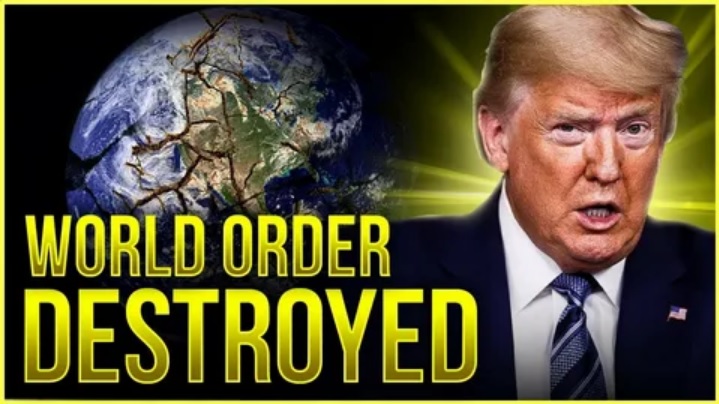
The U.S. president has revamped trade, aid and military force to an extent that attendees here say will have effects for decades to come, POLITICO stresses.
Six months into President Donald Trump’s second administration, national security elites at the annual Aspen Security Forum have accepted that this president has irrevocably upended the global order.
Against the backdrop of the leafy Aspen Meadows Resort, former and current U.S. and foreign officials, business leaders and analysts acknowledged publicly and privately that the Trump administration has dealt a lasting blow to much of the post-World War II consensus around free trade and long-term cooperation.
“We have to recognize that we’re probably not going back to exactly that system,” former Secretary of State Condoleezza Rice said at the closing panel of the summit. Rice is a co-chair of the Aspen Strategy Group, which puts on the annual Rocky Mountains national security confab.
Her words reflect the striking efficacy of the second Trump administration, which in its first six months has taken a sledgehammer to the norms and conventions that governed U.S. trade relations, use of military force and engagement with stalwart partners and alliances. It has also overseen the elimination of agencies that handle foreign policy tasks — most notably the now-defunct U.S. Agency for International Development — and slashed staff within the intelligence community, the Pentagon and the State Department.
The administration has said these moves are necessary to create a more focused and effective foreign policy process that can prioritize American interests above all. But its critics have said the U.S. is reducing its ability to respond to crises, losing its credibility with allies and undermining the global economy by taking such a pugilistic approach to policy.
Either way, attendees at Aspen are trying to adjust to an America First world order.
The first time Trump was president, the national security establishment started out thinking they could influence his policy, and then assumed his policy moves could be easily reversed once he left office. Now that same group is struggling to come up with strategies to influence even on the edges, especially when the administration doesn’t want to be part of the conversation.
The day before the conference was scheduled to start, the Pentagon pulled its speakers, calling the conference a “den of globalists” that didn’t match the administration’s values.
In the end, only one administration official attended the conference: Adam Boehler, Trump’s special envoy for hostage release.
Given the administration’s limited presence, attendees were forced to wrestle with how to address the president’s many changes to foreign policy amongst themselves. The main approach at the conference seemed to be to at least avoid antagonizing team Trump.
Especially on economic questions, attendees and panelists were quick to note that the protectionist tendencies Trump embraces are gaining adherents across the U.S. ideological spectrum.
“It’s a big deal that you’ve now had two presidents of two different parties take a protectionist line,” former U.S. Trade Representative and World Bank Group President Robert Zoellick, said on one panel. “That is a very big switch in the nature of trade politics.”
Some attendees expressed frustration at what they saw as pandering to Trump, saying there was a missing opportunity to have more discussion on the main stage about the potential impacts of Trump’s policies and governing style on U.S. democratic institutions and institutions around the world.
Still, some Democratic attendees argued that Americans aren’t necessarily sold on Trump’s vision for the world. On a panel Friday, Biden administration national security adviser Jake Sullivan argued that people on both sides of the aisle are too ready to read Trump’s 2024 victory as a mandate for protectionism and isolationism.
Some officials focused their warnings on the dangerous uncertainty created by the kind of reshaping of the world that Trump has embarked on.
“Any student of history will know the most dangerous phase is the interregnum between one world order and another,” said Singaporean Foreign Minister Vivian Balakrishnan during a fireside chat at the conference. “Are we in that interregnum? Yes, we are.”
Even without the defense officials in attendance, panelists praised a number of Trump’s recent moves, including his decision to offer lethal aid for Ukraine, the U.S. airstrikes on Iranian nuclear facilities and prompting NATO countries to foot more of the bill when it comes to defense spending.
National security elites also appeared resigned that the norms and conventions that sprang up following World War II — which have dictated U.S. use of military force and how Washington addresses long-held partners and alliances — are now upended thanks to Trump.
read more in our Telegram-channel https://t.me/The_International_Affairs

 11:06 21.07.2025 •
11:06 21.07.2025 •






















